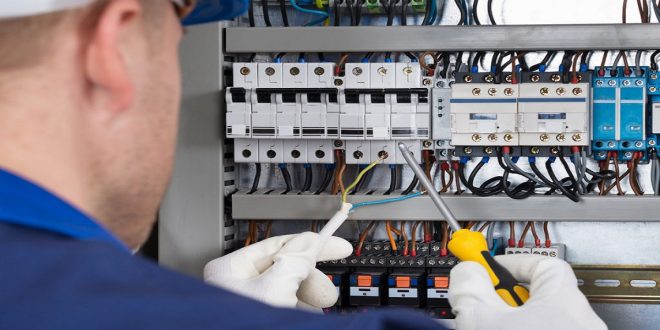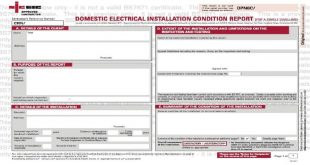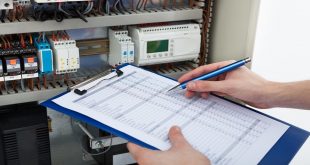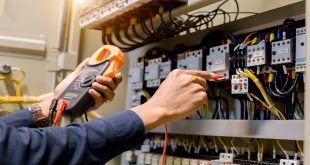The Landlord Electrical Safety Certificate has many methods to protect people against the dangers posed by electricity. Following these basic precautions can help reduce electrical hazards in laboratories.
- Before every use, inspect the wiring. Replace frayed or damaged cables immediately.
- Always use safety precautions when working with electrical equipment.
- Be familiar with the locations and methods of operating circuit breaker boards and shut off switches. These devices can shut down equipment during a fire or electrocution.
- Do not use extension cords. Only for temporary work and then only for a short time. In all cases, request installation for a new electric outlet.
- Multi-plug plug adapters must be equipped with circuit breakers or fuses.
- Cover exposed conductors with shields (e.g., those used with electrophoresis).
- Minimize the chance of chemical or water leakage near electrical equipment.
Insulation
- All electrical cords must have adequate insulation to avoid direct contact. A laboratory should inspect every cable before it is used, as corrosive chemicals, solvents, and other substances can damage the insulation.
- Cords damaged should be replaced immediately, particularly in humid environments such as cold areas and near water baths.
Any of these situations require that the equipment be immediately removed from service.
- Experiencing shocks, even mild shocks, upon contact
- Abnormal heat generation
- Arcing, sparking, and smoking from the equipment
Lab users should mark equipment “Do NOT Use” and contact the manufacturer to arrange for repair.
Guarding
The Landlord Electrical Safety Certificate of electrophoresis devices and other electric equipment at 50 Volts must be maintained. London Property Inspections might be used for protection electrical equipment.
Grounding
In the laboratory, equipment that has two-prong plugs must be used. The two-prong provides an outlet for internal electrical short-circuits and protects the user against potential shock.
Circuit Protection Devices
The Landlord Electrical Safety Certificate prevents electricity from flowing with a ground fault or overload. Circuit breakers or fuses prevent overheating wires, components, and other items that could cause fire dangers. If the circuit becomes overloaded, they disengage it. This overload protection benefits equipment left on more extended periods, such as stirrers, vacuum pumps, and drying ovens. Variacs are just a few examples.
Ground fault circuit interrupter or Landlord Electrical Safety Certificate protects you from electric shock by turning off electric power if a voltage drop is detected. The usefulness is most excellent near wet and sinks locations. EICR London could cause equipment to malfunction unexpectedly and may not be appropriate for certain types of apparatus. You can also use a portable GFCI adapter (available in most safety catalogs) with an outlet.
Motors
Motor-driven electrical apparatus should be equipped with either air or non-sparking Induction motors in areas where volatile flammable chemicals are used. These motors must meet explosion resistance specifications per the Turkish Standard Electric Safety Code. These requirements do not apply to many stirrers or variacs, outlet strips and ovens, heat tape, heat plates, heat guns, and hot plates.
Avoid series-wound motors, such as those commonly found in vacuum pumps or rotary evaporators. Most series-wound engines are found in household appliances such as blenders, mixers, vacuum cleaner, and power drills. These appliances should never be used unless flammable vapors are correctly controlled.
Newer equipment may have spark-free induction motors. However, the speed controls and on/off switches could produce sparks if adjusted. This is due to exposed contacts. Remove any buttons and attach a switch to the cord.
Safe work practices
The following tips can help reduce injury or fire risks when using electrical equipment.
- Avoid loaded or energized circuits.
- The exposed circuits and sources of electricity must be protected.
- Disconnect from the source of the device during the maintenance or service period.
- Before you repair or service electrical equipment, disconnect the power source.
- Handling any equipment that is plugged in, if necessary, must be done with dry hands.
- If you can safely use only one hand to do your work, the other hand should be kept away from any conductive materials. This helps reduce accidents that can lead to the current passing through the chest cavity.
- Condensation issues must be prevented from electrical equipment being used in cold rooms. If such areas are essential, equipment should be mounted on a wall.
- If the device has to be used in conjunction with liquid chemicals or water, you must turn off the power supply at the circuit breaker.
- An individual should not make contact with a live electric. The circuit breaker should be disconnected. Using a leather belt, you can also pull the plug from the outlet.
Landlord Electrical Safety Certificate that provide information about the websites and documents used to prepare this website. Also read https://thebloggerzone.com/
 Latest News | The Blogger Zone
Latest News | The Blogger Zone



